-
22 July 1210 – Birth of Joan of England, Queen of Scotland

1461 – Death of Charles VII of France
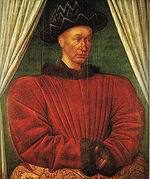
1478 –Birth of Philip I of Castile

1484 – Battle of Lochmaben Fair – A 500-man raiding party led by Alexander Stewart, Duke of Albany and James Douglas, 9th Earl of Douglas are defeated by Scots forces loyal to Albany's brother James III of Scotland; Douglas is captured.
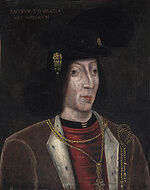
1499 – Battle of Dornach – The Swiss decisively defeat the Imperial army of Emperor Maximilian I.
1510 – Birth of Alessandro de' Medici, Duke of Florence
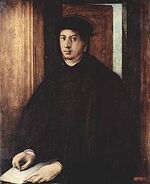
1525-Death of Sir Richard Wingfield,an influential courtier and diplomat in the early years of the Tudor dynasty of England.
1535 – Birth of Catherine Stenbock, Swedish wife of Gustav I of Sweden

1536 - Death of Henry Fitzroy,1st Duke of Richmond and Somerset,son of King Henry VIII of England and his mistress Elizabeth Blount, and the only illegitimate offspring whom Henry acknowledged. He was the younger half-brother of Mary I, Elizabeth I and Edward VI. Through his mother he was the elder brother of Elizabeth Tailboys, 4th Baroness Tailboys of Kyme, George Tailboys, 2nd Baron Tailboys of Kyme and Robert Tailboys, 3rd Baron Tailboys of Kyme.
According to the chronicler Charles Wriothesley, Richmond became sickly some time before he died, although Richmond's biographer Beverley A. Murphy cites his documented public appearances and activities in April and May of that year, without exciting comment on his health, as evidence to the contrary.He was reported ill with "consumption" (usually identified as tuberculosis, but possibly another serious lung complaint) in early July, and died at St. James's Palace on 22 July 1536.
Norfolk gave orders that the body be wrapped in lead and taken in a closed cart for secret interment, but his servants put the body in a straw-filled wagon. The only mourners were two attendants who followed at a distance. The Duke's ornate tomb is in Framlingham Church, Suffolk. One of the houses at the local high school is named after him.
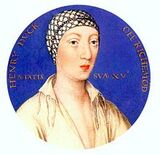
1541-Saints' Days.
Decree by the King for the observance of Saints' days as follows:—The feast of St. Luke and St. Mark, Evangelists, occurring within the terms at Westminster, and the feast of St. Mary Magdalene falling within the time of harvest were, amongst other holydays, abrogated; but as these Saints are many times mentioned in Scripture, their feasts are henceforth to be kept. St. Mark's Day in divers parts of the realm used to be kept as a fasting day, as no other Saint's day is, but henceforth it is not to be so kept. By reason of the variable falling of Easter the feast of the Invention of the Cross, commonly called St. Elyn's Day, sometimes falls within Easter term, and is therefore not kept; it is henceforth abrogated whether it fall within or without the term. Likewise the Exaltation of the Cross in harvest or out of harvest shall not be kept. St. Laurence Day falling within harvest was abrogated, but as no mention was made of the fast upon the eve of St. Laurence, many people feel bound to keep it upon the eve; it is henceforth not to be kept. Childish superstitions are still used in divers places upon St. Nicholas, St. Catharine, St. Clement, Holy Innocents, and the like, children being apparelled to counterfeit priests, bishops and women, and so led, with songs and dances, from house to house, blessing the people and gathering money, and boys singing mass and preaching in the pulpit, rather to the derision than to any true glory of God. Henceforth such superstitions are forbidden.

1549 - Robert Kett and his fellow protests attack and occupy Norwich
source:http://www.british-history.ac.uk/,wikipedia
-
21 July 1403 – Battle of Shrewsbury: King Henry IV of England defeats rebels to the north of the county town of Shropshire, England.

1403 – Death of Henry Percy, English soldier
Sir Henry Percy was known as one of the most valiant knights of his day, and was a significant captain during the Anglo-Scottish wars. He later led successive rebellions against Henry IV of England, and was slain at the Battle of Shrewsbury in 1403 at the height of his career.
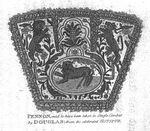
1528-Henry VIII to Anne Boleyn
The approach of the time which has been delayed so long delights me so much that it seems almost already come. Nevertheless, the entire accomplishment cannot be till the two persons meet; which meeting is more desired on my part than anything in the world, for what joy can be so great as to have the company of her who is my most dear friend, knowing likewise that she does the same. Judge then what will that personage do whose absence has given me the greatest pain in my heart, which neither tongue nor writing can express, and nothing but that can remedy. Tell your father on my part that I beg him to abridge by two days the time appointed that he may be in court before the old term, or at least upon the day prefixed; otherwise I shall think he will not do the lover's turn as he said he would, nor answer my expectation. No more, for want of time. I hope soon to tell you by mouth the rest of the pains I have suffered in your absence. Written by the hand of the secretary, who hopes to be privately with you
Is perplexed with such things as her brother will declare to her. Wrote in his last that he trusted shortly to see her, "which is better known at London than with any that is about me; whereof I not a little marvel, but lack of discreet handling must be the cause thereof." I hope soon "our meeting shall not depend upon other men's lyght handylleness but upon your own. Written with the hand of hys that longeth to be yours."

1528- HERETICS.
i. Confession of Edmund Tyball, of Bumstede, husbandman, before Mr. Wharton, in St. Mary's chapel in the monastery of Walden, 21 July, "anno Domini supradicto."
About Christmas last heard Sir Richard Fox, parish priest of Bumstede, say in John Darkyn's house that he wished he had my lord Cardinal's authority, and he would pull down these images in the church, for he feared many sinned in idolatry. John Lond was angry with him for these words, said he would bear a fagot to burn him, and after that took his "portyse" in his hand. Sir Richard replied "that there is never a word that God ever made." At this Darkyn was very "wode," and bade him get out of his house. At the same time Fox said, "Ye make a vow or a behest to go in pilgrimage to Our Lady of Ipswich, Walsingham, or to Canterbury, and there by a candle of wax think ye do well." Darkyns replied, "Yea. How say you?" To which Fox gave no answer. After that Fox said openly that God commanded no fasting days except the "Imbren days," and men were not bound to other days, except after their devotion.
Was shriven last Lent by Fox, who, during his confession, asked him how he believed in the Sacrament of the Altar. Answered, that he believed that God was there in form of bread, Redeemer of all the world; and then Fox said, "Nay; it is but a remembrance of Christ's Passion." Never believed nor consented to this teaching, but did not disclose it. Was much in company with and very familiar with Fox.
Abjuration of all heresies by Tyball, and promise to discover all persons whom he knows to be heretics. Signed with a cross.
Wharton absolved Tyball, on his confession, from the sentence of excommunication, and enjoined him, as penance, to carry a fagot before the procession at the church of Steple Bumstede on the following Sunday, and to hear high mass throughout. Present: Dr. Jynner, Mr. Core, rector of Radwinter, Richard, curate of Heydon, John Goldyng and Thomas Turner.
1528-Henry VIII to Queen Margaret
Thanks her for her discreet answers to his letters, urging the erection of her son to his proper estate, to which her natural affection and her great wisdom must lead her; for whoever considers Albany's demeanor in undertaking such a suspect governance, in pretending to be heir apparent, in restoring himself and his blood during the young King's minority, in usurping divers patrimonies of the King to his own succession, and in detaining and misemploying the crown revenues, and the damage which has ensued through him as servant to the French king, may evidently perceive that he either will not dare return as the King is so nearly of age, or, if he do, he will not abide the danger, which will be imputed to him, but will rather compass the Scotch king's destruction, and himself aspire to the throne, with the advice and help of the French king, who hates nothing more than the proximity of blood between the kings of England and Scotland. Knows that he intends this, by intercepted letters and other credible ways. All the King's friends and true subjects must regard this as Henry himself has done in making war, to his no small expence, on Albany's supporters, for the King's preservation. If he had not done so, the King would have been in extreme danger. Offers to defend her, her son and his friends, against all princes and persons, in taking his royal dignity, which must not be deferred for four or five days, nor for one day or hour, but done immediately in spite of all sinister compasses and colorable persuasions. As, therefore, they have so great a friend to maintain their quarrel, she must cause the King immediately, if it is not already done, to come forth and give express commandment to all his nobles and subjects, on pain of their allegiance, to take his part, and whoever will move or persuade him to the contrary, to be accounted a rebel and traitor. Will treat thus every one so persisting. To show by deeds as well as words that he will maintain their quarrel, has sent Norfolk to the Borders as his lieutenant, to advise them, and, if need be, assist them, as Norfolk will show.
As to peace between the realms, never intended that any but she should have the honor and doing thereof, as she has always labored for it, and it is not to be attempted except by a person of her estate. Nevertheless, has not showed himself displeasant to any honorable nobleman who proposed anything concerning peace. Was thus persuaded by Angus, contrary to his former intention, to admit a diet between Norfolk and the Chancellor in case they would abandon Albany and "erect" the King; not that he intended Angus to have any authority in conducting it, but that she should be the author and mediator thereof. Has ordered that if any such diet is held, all shall be done by her. Has arranged that Angus shall remain on the Borders, and not meddle more than she wishes; and he never intended to do anything but with her advice and consent. She can see that she could not wish him to have more regard to her son's weal than he is determined to show. If anything expedient is passed over, it shall never be said that there was any lack in him to do as much or more than a loving uncle and brother should do. Commits the rest to her wisdom, and to those who will prove themselves his nephew's faithful subjects. They may be sure that by so doing they will obtain from him more benefit than they have hitherto, or shall receive by any other way.
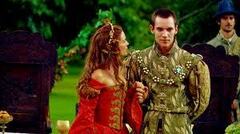
1536-Princess Mary to Henry VIII.
The King gave her licence some time to send a servant to know of his health and prosperity. Has now sent her old servant Randal Dod with these letters as a token, and begs the King, if she is "over hasty in sending so soon," to pardon her, and believe that she would rather be a chamberer, having the fruition of the King's presence, than an Empress away from him. My sister Elizabeth is well, "and such a child toward, as I doubt not but your Highness shall have cause to rejoice of in time coming; as knoweth Almighty God, who send your Grace, with the Queen my good mother, health, with the accomplishment of your desires." Hownsdon, 21 July.
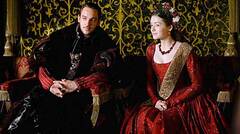
1540-Anne of Cleves to the Duke of Cleves.
Perceives by his letter of the 13th to the king of England, her “most dear and most kind brother,” that he takes the matter lately determined between them somewhat to heart. Informs him that she consented to the examination and determination, “wherein I had more respect (as beseemed me) to truth than to any worldly affection that might move me to the contrary, and did the rather condescend thereunto for that my body remaineth in the integrity which I brought into this realm.” The King has adopted her as his sister, and uses her with more liberality than she or her brother could well wish. Is well satisfied. The King's friendship for him will not be impaired for this matter unless the fault should be in himself. Thinks it necessary to write this, and that she purposes to live here, lest for want of true knowledge he should take the matter otherwise than he ought. Subscribed: Anna Duchess born of Cleves, Gulik, Geldre, and Berge, your loving sister.
Statement of the provision made by Henry VIII. for Anne of Cleves:—
1. She will be considered as the King's sister, and have precedence over all ladies in England, after the Queen and the King's children.2. She shall have an annual income of 8,000 nobles; and 500l. st. have been given to her officers. 3. Two manors, Richmond and Blechingley, having splendid houses and parks of 6 leagues and 2 leagues.
4. She shall have hangings, plate, and furniture, and (5), money for her household till her income is sufficient. 6. “Pretiosissimas [vestes].” 7. Jewels and pearls. 8. A good number of officers, the heads being nobles.

1545 – The first landing of French troops on the coast of the Isle of Wight during the French invasion of the Isle of Wight.
1553 - Arrest of John Dudley, Duke of Northumberland

source:http://www.british-history.ac.uk/,wikipedia
-
20 July 1189 – Richard I of England officially invested as Duke of Normandy.
1304 – Wars of Scottish Independence: Fall of Stirling Castle – King Edward I of England takes the stronghold using the War Wolf.
1387 – Death of Robert IV of Artois, Count of Eu

1398 – Death of Roger Mortimer, 4th Earl of March
1454 –Death of John II of Castile
1524 – Death of Queen Claude of France
She was queen consort of France and duchess regnant of Brittany. She was the eldest daughter of Louis XII of France (First husband of Mary Tudor) and Anne of Brittany, as well as the first spouse of Francis I of France.
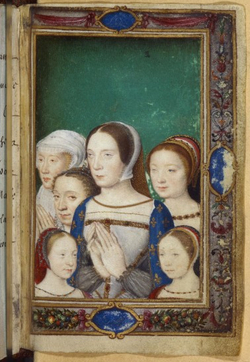
1528- THE DIVORCE.
Notarial attestation of the presentation to the Pope, on 20 July, 1528, 5 Clement VII., by John Anthony Musettula, nobleman of Naples, and imperial ambassador to his Holiness, of a petition and protestation, in behalf of queen Katharine, to the following effect.
Hears that the Pope intends to send cardinal Campeggio to England to determine the pretended suit by which the King intends to annul his marriage. Prays his Holiness to forbid the suit, and impose perpetual silence, as the marriage was contracted in accordance with an apostolic ordinance, and consummated by the cohabitation of many years and the birth of children. Wars between Christian princes will be the result. It is intended to separate what God has joined, mutual will has confirmed, and the Holy See has ratified; to impugn the decrees of the Roman church, and restrain the Pope's power. The enemy of man will profit much from this seed of wickedness and discord. No marriages will be secure if this is dissolved. The cause should on no account be decided, except at the court of Rome, because of its importance, and because it turns upon the interpretation of a papal dispensation. Least of all should it be determined in England, where the Queen fears the power of the King, and there will be no security for her defence. In his Holiness's court she is ready to show her rights.
The Legates are much suspected, especially the cardinal of York, who is chancellor of England, and councillor and vassal to the King, and has often urged the Pope to grant the King's request about this matter. Petitions his Holiness therefore to revoke all commissions to try the cause away from Rome, and appeals to his tribunal in the name of the Queen and of the Emperor. Protests that as she is in England, and in her husband's power, no acts executed by her concerning the place or mode of trial must be understood to the prejudice of her rights.
Viterbo, "in ædibus S. Sixti," where the Pope resides. Witnesses: Peter Ruiz de Alacron (sic), of Spain, and Julian Visconti, clerk, of Milan.
Attested by Baldus de Nigris, of Civita Nova, in the diocese of Fermo, notary of the Apostolic Chamber.
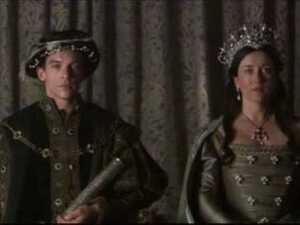
1535-Vice-Chancellor and University of Cambridge to Anne Boleyn
Beg her to remit the payment of tenths and first-fruits on account of the poverty of the persons who will have to pay these dues and of the colleges. Cambridge, 20 July.
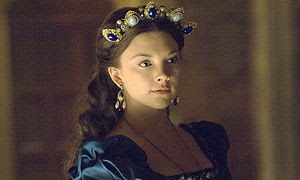
1554 - Philip II of Spain arrived in England

1554 - John Knox published “A Faithful Admonition to the Professors of God’s Truth in England”.

1603-Sir Walter Raleigh is imprisoned in the Tower of London.
source:http://www.british-history.ac.uk/,wikipedia
-
19 July 1415 – Death of Philippa of Lancaster

1543-Death of Mary Boleyn

She was the sister of Anne Boleyn and a member of the Boleyn family, which enjoyed considerable influence during the reign of King Henry VIII of England. Some historians claim she was Anne's younger sister, but her children believed Mary was the elder, as do most historians today.
Mary was one of the mistresses of Henry VIII, from a period of roughly 1521 to 1526. It has been rumoured that she bore two of the king's children, though Henry did not acknowledge either of them as he had done with Henry FitzRoy, his son by Bessie Blount. Mary was also rumoured to have been a mistress of Henry VIII's rival, King Francis I of France, for some period between 1515 and 1519.She was the maternal aunt of Queen Elizabeth I of England.
Mary Boleyn was married twice: in 1520 to William Carey, and secretly in 1534, the year after sister Anne married the king, to William Stafford, a soldier of good family but few prospects. This secret marriage to a man considered beneath her station angered both Henry VIII and her sister, Queen Anne, and resulted in Mary's banishment from the royal court; she spent the remainder of her life in obscurity, dying seven years after sister Anne's execution.

1545 – The Tudor warship Mary Rose sinks off Portsmouth; in 1982 the wreck is salvaged in one of the most complex and expensive projects in the history of maritime archaeology.

1551 - Marriage arranged between Henry II of France's daughter Elizabeth and Edward VI

1553 – Lady Jane Grey is replaced by Mary I of England as Queen of England after only nine days on the throne.

1584 - Death of Robert Dudley, Baron Denbigh, son of Robert Dudley, Earl of Leicester, and Lettice Knollys

1596 - Death of Sir Francis Knollys
He was a courtier in the service of Henry VIII, Edward VI and Elizabeth I, and was a member of parliament for a number of constituencies.
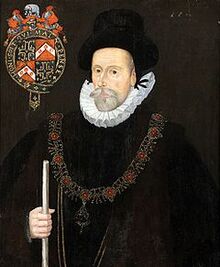
source:wikipedia
-
1501 –Birth of Isabella of Austria

1509 - Edmund Dudley convicted of treason.
Edmund Dudley was an English administrator and a financial agent of King Henry VII. He served as Speaker of the House of Commons and President of the King's Council. After the accession of Henry VIII, he was imprisoned in the Tower of London and executed the next year on a treason charge. While waiting for his execution he wrote The Tree of Commonwealth.
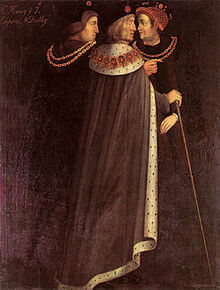
1536- Bonds held by Anne Boleyn.
Receipt by John Gostwyke, treasurer of the tenths and first fruits, from Rafe Sadeler, groom of the Privy Chamber, of the following obligations:—1. A bond of Edm. Harvy to Sir Jas. Bullayne, chancellor to the late queen Anne, and Geo. Taylor, her receiver, in 100 mks., 17 Dec. 20 Hen. VIII. 2. Bond of John Asteley, Edm. Harvy, and Hen. Lumner, to Taylor, in 100l., 4 April 26 Hen. VIII. 3. Bond of lady Blanche, widow of Sir Wm. Herbert, to the late Queen, in 40 l., 14 March 27 Hen. VIII. 4. Bond of Sir Edw. Baynton to the late Queen for 200 l., 23 Dec. 27 Hen. VIII. 5. Bond of Geo. Taylor to the late Queen for 30 l., 2 June 27 Hen. VIII. 6. Bond of Eliz. Countess of Worcester to the late Queen for 100 l., 8 April 27 Hen. VIII. 7. Bond of the bp. of Worcester to the late Queen in 200 l., 18 Aug. 27 Hen. VIII. 8. Bond of lady Margaret Bryan to the late Queen in 20 l., 3 March 28 Hen. VIII. 9. Bond of Edw. Charnocke, page of the wardrobe for the robes of the late Queen, to Sir Jas. Bulleyn and Sir Edw. Baynton, in 20 l., 2 April 25 Hen. VIII. 10. Bond of Nic. Shaxton, bp. of Salisbury, to the late Queen in 200 l., 13 March 20 Hen. VIII.—18 July

1552–Birth of Rudolf II, Holy Roman Emperor
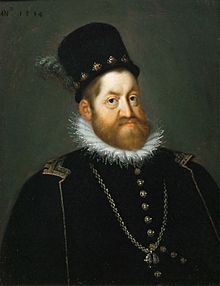
1553 – The Earls of Pembroke and Arundel persuaded council members that Mary’s claim to the throne was legitimate.
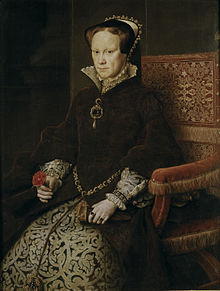
1555 – The College of Arms is reincorporated by Royal charter signed by Queen Mary I of England and King Philip II of Spain.
c

The College of Arms or Herald's College is a royal corporation consisting of professional officers of arms, with jurisdiction over England, Wales, Northern Ireland and some Commonwealth realms. The heralds are appointed by the British Sovereign and are delegated authority to act on her behalf in all matters of heraldry, the granting of new coats of arms, genealogical research and the recording of pedigrees. The College is also the official body responsible for matters relating to the flying of flags on land, and it maintains the official registers of flags and other national symbols. Though a part of the Royal Household of the United Kingdom the College is self-financed, unsupported by any public funds.
Founded by royal charter in 1484 by King Richard III, the College is one of the few remaining official heraldic authorities in Europe. Within the United Kingdom, there are two such authorities, the Court of the Lord Lyon in Scotland and the College for the rest of the United Kingdom. The College has had its home in the City of London since its foundation, and has been at its present location on Queen Victoria Street since 1555. The College of Arms also undertakes and consults on the planning of many ceremonial occasions such as coronations, state funerals, the annual Garter Service and the State Opening of Parliament. Heralds of the College accompany the sovereign on many of these occasions.
The College comprises thirteen officers or heralds: three Kings of Arms, six Heralds of Arms and four Pursuivants of Arms. There are also seven officers extraordinary, who take part in ceremonial occasions but are not part of the College. The entire corporation is overseen by the Earl Marshal, a hereditary office held by the Duke of Norfolk, currently Edward Fitzalan-Howard, 18th Duke of Norfolk.
1565 - Death of Katherine Ashley
She was governess to Elizabeth I and was a close friend in later life, known to the Queen as 'Kat', and it is by the name 'Kat Ashley' that she is generally known to history. She should not be confused with her niece Catherine Champernowne, mother of Sir Walter Raleigh and Sir Humphrey Gilbert

source:http://www.british-history.ac.uk/,wikipedia




